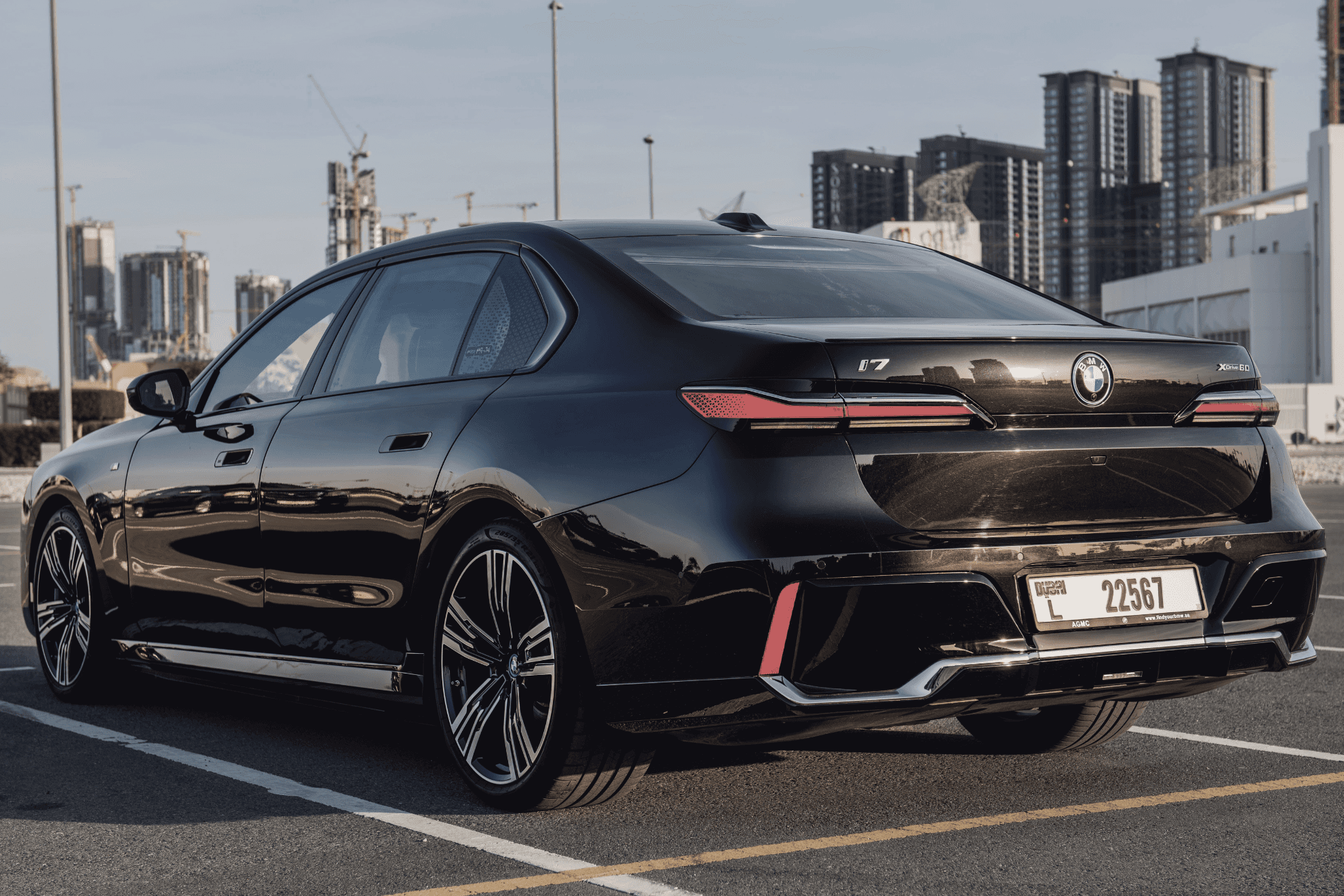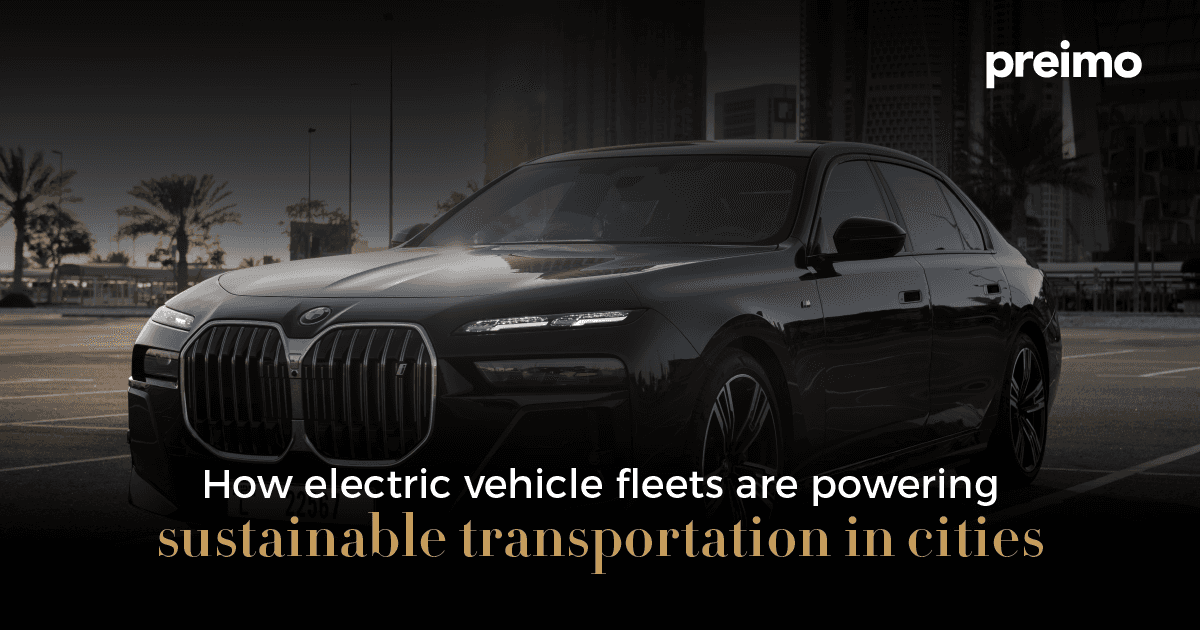16 أغسطس 2024
Summary
With advances in EV technology and decreasing costs, more cities are investing in electrifying public transport and implementing EV policies to support the transition to emission-free mobility.
Introduction
Urban cities worldwide are embracing greener initiatives, and it's crucial for us to act today. Sustainable Transportation in Cities is vital, especially with climate change looming and electric vehicles (EVs) offering a practical solution for eco-friendly transport.
EVs produce zero emissions, helping cities switch to environmentally friendly transportation and reducing their environmental impact while promoting growth. As battery technology improves and costs decrease, widespread EV adoption can help cities meet sustainability targets in the coming decades.

Sustainable Transportation is Key to the Future of Urban Areas
Reducing the environmental impact of enterprises and cities requires sustainable mobility alternatives. Among many initiatives, the growing use of electric cars (EVs) stands out, especially when combined with renewable energy to reduce emissions. However, EV adoption depends on addressing two key challenges: charging infrastructure and battery technology. Thus, the EV market hinges on these two criteria.

Battery EVs
The cost and efficiency of batteries are vital for sustainable urban transportation. Although batteries currently make up a significant portion of an EV's cost, new advancements have lowered costs and improved performance. Emerging technologies aim to shorten charging times, which is crucial for municipal and commercial fleets that rely on road mobility. As batteries evolve, EVs may become more economically practical for urban transportation needs.

Charging Stations
Building high-speed public charging stations strategically around population centres is crucial. Municipal officials need to ensure chauffeurs have confidence in long-distance travel by strategically placing charging infrastructure. Coordinating charging stations with renewable energy sources can power transportation more sustainably.
Electric vehicles (EVs) offer cities significant potential for transitioning to cleaner, renewable energy-powered transportation systems in the future. Addressing infrastructure and battery challenges is key to unlocking this potential. Communities can foster widespread EV adoption through collaborative efforts and innovative solutions.
The Rise of Electric Vehicle Fleets
The electrification of transportation is accelerating with the rapid growth of electric vehicle fleets. Commercial vehicles such as trucks, buses, and delivery vans are expected to lead this shift, as fleet operators can realise quicker returns on investments due to higher vehicle usage.
Switching to electric fleets is particularly attractive for businesses aiming to reduce long-term costs, given the lower operating and maintenance expenses of electric vehicles. As the commercial sector embraces electric vehicles, acceptance and adoption of electric fleets are likely to increase automatically.

Environmental Benefits
Electric vehicles (EVs) make a substantial environmental contribution compared to gas-powered vehicles. They produce no direct emissions, reducing public health risks and air pollution significantly.
Adopting EVs will decrease reliance on fossil fuels and curb greenhouse gas emissions that drive climate change. Switching to electric vehicles is crucial for creating a sustainable future with reduced carbon emissions and improved air quality. Over time, widespread use of EVs can greatly enhance environmental conditions.
Trend Accelerators
The adoption of electric vehicles (EVs) is rapidly gaining momentum. Governments worldwide are implementing regulations to reduce pollution from gas-powered cars or offering financial incentives for purchasing EVs. Improved battery technology allows EVs to travel longer distances between charges and reduces ownership costs.
Yet, it's not just regulations and technology driving this change; there's also a growing public concern for environmental preservation. Many consumers actively seek out eco-friendly products.
Consequently, automakers are significantly increasing their investments in electric vehicles, with some predicting the eventual end of gas automobile manufacturing. These factors are collectively accelerating the shift toward electric vehicles.
The Change Begins Today
The United Arab Emirates (UAE) is aggressively moving towards adopting sustainable mobility solutions and electric cars. While EV adoption rates were previously low, the years 2022 and 2023 have marked a turnaround, setting the stage for rapid expansion at a projected 30% compound annual growth rate by 2028.
Abu Dhabi plans to introduce 4,000 autonomous electric taxis by 2030, and Dubai has committed to converting half of its taxi fleet to hybrid or electric vehicles. These initiatives highlight the UAE's commitment to transitioning to greener transportation.

By 2030, the United Arab Emirates plans to install 70,000 charging stations, a significant increase from the current 250 stations in Abu Dhabi alone. This extensive infrastructure development is expected to bolster driver confidence in transitioning to electric vehicles.
Did you know?
The UAE aims for 10% of all vehicle sales and 30% of public sector cars to be electric or hybrid by 2030. These goals reflect the country's ambitious plans for transforming its vehicle fleet.
If these objectives are achieved, it will mark a substantial transformation in the transportation sector, promoting sustainability and a greener future.
Analysis suggests that transitioning from internal combustion engine vehicles to battery electric vehicles could cut CO2 emissions by an estimated 50–75%. The UAE's electrification efforts appear poised to enhance mobility and cleanliness and aid in reducing the country's carbon footprint.
Conclusion
Sustainable transportation is evolving globally as cities adopt larger fleets of electric vehicles. Many urban areas are electrifying their public transportation systems as electric vehicle technology advances and costs decrease. EVs offer significant environmental benefits, such as reduced greenhouse gas emissions and air pollution. Preimo Urban Mobility, a leading chauffeur service provider, has adapted to sustainable transportation by offering electric vehicle (EV) fleets to their clients, demonstrating their commitment to environmental responsibility and providing eco-friendly mobility solutions.
Ultimately, widespread fleet electrification could lead to a transition to greener, renewable mobility options in cities worldwide, provided that trend accelerators continue to gain momentum.
FAQs Related to Electric Fleets and Sustainable Transportation in Cities
How do electric vehicles help in sustainable development?
Electric vehicles help in sustainable development by reducing emissions from transportation which is a major contributor to air pollution and climate change.
How are electric vehicles the future of transportation?
Electric vehicles are the future of transportation because they produce zero direct emissions, are more efficient than gasoline vehicles, and will become more affordable as battery technology advances.
How sustainable is the production of electric cars?
The production of electric cars can be sustainable when the electricity used to charge them comes from renewable sources and the batteries are recycled and reused at the end of the vehicle's life.
Why are electric buses sustainable?
Electric buses are sustainable because they do not produce tailpipe emissions, so they improve local air quality and public health when replacing diesel buses. Their operation uses electricity that may come from renewable sources.


